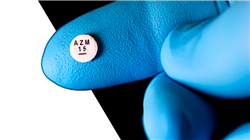University certificate
The world's largest faculty of medicine”
Introduction to the Program
With this 100% online Postgraduate diploma, you will immerse yourself in the causes and mechanisms of antibiotic resistance, as well as the health policies that influence its spread, facing this challenge effectively”

With the alarming increase in bacterial antibiotic resistance, clinical protocols have evolved towards a more personalized approach, using advanced molecular diagnostic techniques to rapidly identify pathogens and determine their resistance profiles. This integration of genomics and microbiology has enabled the development of targeted therapies and more effective prevention strategies.
In this way, this university diploma was born, which will address in depth the problem of multidrug-resistant bacteria in human pathology, exploring from the roots of antibiotic resistance, to determining factors such as the scarcity of new antibiotics, socioeconomic influences and health policies. It will also examine the global situation of resistance, providing updated statistics and regional trends to better understand the scope of the problem worldwide.
Furthermore, the syllabus will focus on the clinical management of patients with Multidrug-Resistant Infections in Intensive Care Units (ICU). Here, professionals will acquire specialized knowledge in diagnosis and treatment of frequent infections in critical settings, as well as advanced skills in the implementation of preventive measures to reduce the incidence and spread of these resistant bacteria within ICUs.
Finally, physicians will focus on Proteomics applied to Clinical Microbiology, delving into qualitative and quantitative techniques for the separation and identification of relevant bacterial proteins. In addition, they will be updated in the use of bioinformatics tools for the analysis of proteomic and genomic data, applying innovative approaches in the identification of resistance profiles and in the design of personalized therapeutic strategies against Multidrug-Resistant Bacteria.
Therefore, TECH has developed a complete, fully online and flexible university program that only requires an electronic device with an Internet connection to access all the teaching resources. In addition, it is based on the innovative Relearning methodology, which uses repetition of key concepts to ensure an effective and natural assimilation of information.
You will be equipped with the skills necessary to address the challenges associated with infections caused by Multidrug-Resistant Bacteria, including their clinical and molecular management. What are you waiting for to enroll?"
This Postgraduate diploma in Postgraduate Diploma in Clinical and Molecular Management of Infections Caused by Multidrug-Resistant Bacteria contains the most complete and up-to-date scientific program on the market. The most important features include:
- The development of practical cases presented by experts in Microbiology, Medicine and Parasitology
- The graphic, schematic and eminently practical contents with which it is conceived gather scientific and practical information on those disciplines that are indispensable for professional practice
- Practical exercises where the self-assessment process can be carried out to improve learning
- Its special emphasis on innovative methodologies
- Theoretical lessons, questions to the expert, debate forums on controversial topics, and individual reflection assignments
- Content that is accessible from any fixed or portable device with an Internet connection
Bet on TECH! You will apply bioinformatics tools in Proteomics and Genomics, understanding antibiotic resistance at the molecular level and developing more precise and personalized therapeutic strategies”
The program’s teaching staff includes professionals from the field who contribute their work experience to this educational program, as well as renowned specialists from leading societies and prestigious universities.
The multimedia content, developed with the latest educational technology, will provide the professional with situated and contextual learning, i.e., a simulated environment that will provide immersive education programmed to learn in real situations.
This program is designed around Problem-Based Learning, whereby the professional must try to solve the different professional practice situations that arise during the course. For this purpose, students will be assisted by an innovative interactive video system created by renowned and experienced experts.
You will examine the global situation of antibiotic resistance, according to current statistics and regional trends that impact the effectiveness of antimicrobial treatments. With all the TECH guarantees!"

You will be updated in specialized knowledge for the diagnosis and treatment of the most common Multidrug-Resistant Infections in the ICU, through an extensive library of multimedia resources"
Why study at TECH?
TECH is the world’s largest online university. With an impressive catalog of more than 14,000 university programs available in 11 languages, it is positioned as a leader in employability, with a 99% job placement rate. In addition, it relies on an enormous faculty of more than 6,000 professors of the highest international renown.

Study at the world's largest online university and guarantee your professional success. The future starts at TECH”
The world’s best online university according to FORBES
The prestigious Forbes magazine, specialized in business and finance, has highlighted TECH as “the world's best online university” This is what they have recently stated in an article in their digital edition in which they echo the success story of this institution, “thanks to the academic offer it provides, the selection of its teaching staff, and an innovative learning method aimed at educating the professionals of the future”
A revolutionary study method, a cutting-edge faculty and a practical focus: the key to TECH's success.
The most complete study plans on the university scene
TECH offers the most complete study plans on the university scene, with syllabuses that cover fundamental concepts and, at the same time, the main scientific advances in their specific scientific areas. In addition, these programs are continuously being updated to guarantee students the academic vanguard and the most in-demand professional skills. In this way, the university's qualifications provide its graduates with a significant advantage to propel their careers to success.
TECH offers the most comprehensive and intensive study plans on the current university scene.
A world-class teaching staff
TECH's teaching staff is made up of more than 6,000 professors with the highest international recognition. Professors, researchers and top executives of multinational companies, including Isaiah Covington, performance coach of the Boston Celtics; Magda Romanska, principal investigator at Harvard MetaLAB; Ignacio Wistumba, chairman of the department of translational molecular pathology at MD Anderson Cancer Center; and D.W. Pine, creative director of TIME magazine, among others.
Internationally renowned experts, specialized in different branches of Health, Technology, Communication and Business, form part of the TECH faculty.
A unique learning method
TECH is the first university to use Relearning in all its programs. It is the best online learning methodology, accredited with international teaching quality certifications, provided by prestigious educational agencies. In addition, this disruptive educational model is complemented with the “Case Method”, thereby setting up a unique online teaching strategy. Innovative teaching resources are also implemented, including detailed videos, infographics and interactive summaries.
TECH combines Relearning and the Case Method in all its university programs to guarantee excellent theoretical and practical learning, studying whenever and wherever you want.
The world's largest online university
TECH is the world’s largest online university. We are the largest educational institution, with the best and widest online educational catalog, one hundred percent online and covering the vast majority of areas of knowledge. We offer a large selection of our own degrees and accredited online undergraduate and postgraduate degrees. In total, more than 14,000 university degrees, in eleven different languages, make us the largest educational largest in the world.
TECH has the world's most extensive catalog of academic and official programs, available in more than 11 languages.
Google Premier Partner
The American technology giant has awarded TECH the Google Google Premier Partner badge. This award, which is only available to 3% of the world's companies, highlights the efficient, flexible and tailored experience that this university provides to students. The recognition as a Google Premier Partner not only accredits the maximum rigor, performance and investment in TECH's digital infrastructures, but also places this university as one of the world's leading technology companies.
Google has positioned TECH in the top 3% of the world's most important technology companies by awarding it its Google Premier Partner badge.
The official online university of the NBA
TECH is the official online university of the NBA. Thanks to our agreement with the biggest league in basketball, we offer our students exclusive university programs, as well as a wide variety of educational resources focused on the business of the league and other areas of the sports industry. Each program is made up of a uniquely designed syllabus and features exceptional guest hosts: professionals with a distinguished sports background who will offer their expertise on the most relevant topics.
TECH has been selected by the NBA, the world's top basketball league, as its official online university.
The top-rated university by its students
Students have positioned TECH as the world's top-rated university on the main review websites, with a highest rating of 4.9 out of 5, obtained from more than 1,000 reviews. These results consolidate TECH as the benchmark university institution at an international level, reflecting the excellence and positive impact of its educational model.” reflecting the excellence and positive impact of its educational model.”
TECH is the world’s top-rated university by its students.
Leaders in employability
TECH has managed to become the leading university in employability. 99% of its students obtain jobs in the academic field they have studied, within one year of completing any of the university's programs. A similar number achieve immediate career enhancement. All this thanks to a study methodology that bases its effectiveness on the acquisition of practical skills, which are absolutely necessary for professional development.
99% of TECH graduates find a job within a year of completing their studies.
Postgraduate Diploma in Clinical and Molecular Management of Infections Caused by Multidrug-Resistant Bacteria
The Postgraduate Diploma in Clinical and Molecular Management of Infections Caused by Multidrug-Resistant Bacteria from TECH Global University is a cutting-edge program designed to specialize health professionals in the effective treatment of infectious diseases that are difficult to treat due to bacterial resistance. This postgraduate degree is offered in an online classroom mode, allowing participants to study flexibly from anywhere in the world. As a leading institute in the field, we are committed to providing a high-level education that combines advanced theoretical knowledge with practical applications in the management of multidrug-resistant bacteria. Our program is specially designed for physicians, microbiologists and other professionals interested in acquiring specialized skills in the prevention, diagnosis and treatment of resistant bacterial infections.
Get certified in infection management without leaving home
The program's online classes offer the flexibility necessary for students to manage their study time efficiently, without compromising the quality of learning. Participants will have access to up-to-date educational resources and advanced technological tools that facilitate interaction with course content and collaboration with other professionals in the field. Furthermore, the syllabus covers everything from the fundamentals of molecular microbiology to the most advanced strategies in antimicrobial therapy. Students will learn to use molecular diagnostic techniques to identify resistant pathogens and apply up-to-date clinical protocols to optimize the management of patients with multidrug-resistant infections. Our faculty is composed of experts with extensive experience in the field of clinical microbiology and bacterial drug resistance. This combination of theoretical knowledge and practical experience ensures that students acquire strong competencies and are prepared to meet emerging challenges in the care of patients with resistant bacterial infections. Join TECH and make a difference in the fight against multidrug-resistant bacteria.







